Gardeners Raynes Park: Celebrating Nature and Community
Introduction to Gardeners Raynes Park
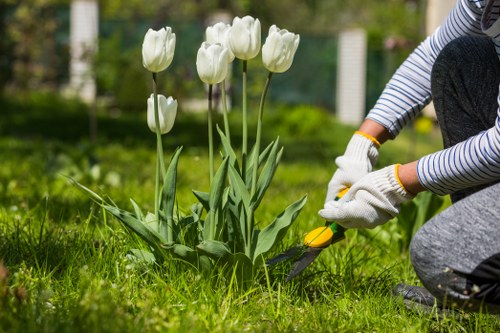
Raynes Park is more than just an area on the map – it is a thriving community where nature meets nurture. In this unique part of London, gardening is not simply a hobby, but a lifestyle that fosters creativity, sustainability, and unity. Gardeners in Raynes Park bring life to public spaces, private gardens, and community allotments alike, creating healthy, vibrant green corners that beautify the neighborhood.
This passion is rooted in a rich tradition of horticulture that spans decades. Locals from various walks of life, whether seasoned professionals or enthusiastic beginners, treat gardening as a form of art. They carefully plan flower beds, vegetable patches, and ornamental spaces, always mindful of maintaining eco-friendly practices and organic methods that benefit both the environment and the community.
As you walk through the streets of Raynes Park, you'll be greeted with bursts of color, fragrant aromas, and creative displays of nature. The blend of traditional techniques with modern innovations makes each garden a living masterpiece. This attention to detail and a shared commitment to green living have turned the area into a beacon for those who cherish nature.
Rich History and Gardening Traditions
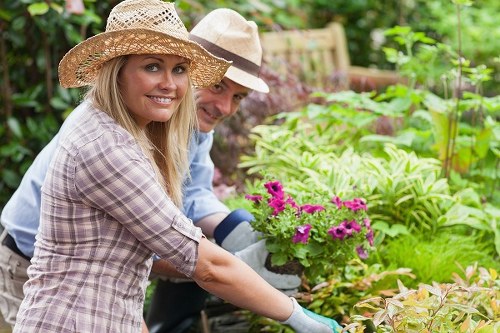
Historically, Raynes Park has been a hub for cultural exchange, and its gardens have played an important part in the local heritage. From quaint community gardens to expansive green parks, the tradition of gardening here has evolved in harmony with the changing times. Many local families have passed down gardening secrets from generation to generation, creating an enduring legacy of environmental stewardship and community pride.
Local gardeners pride themselves on keeping a balance between traditional horticultural practices and modern sustainable techniques. They grow everything from seasonal vegetables to ornamental plants with a deep sense of respect for nature. Over the years, community gardening initiatives have brought neighbors together and have even led to the creation of educational workshops on sustainable gardening practices.
Alongside these traditions, innovation has steadily made its mark. Gardeners now integrate advanced composting methods, water-saving technologies, and organic fertilizers in their daily routines. This blend of old and new has resulted in lush gardens that are not only aesthetically pleasing but also models of environmental responsibility.
Community and Environmental Impact
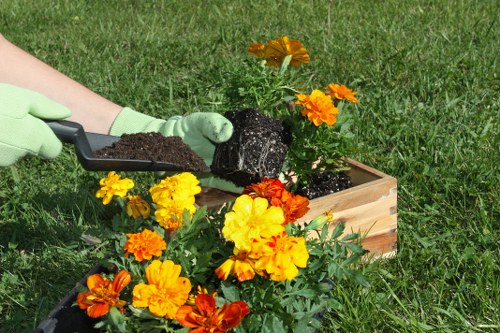
One of the most notable aspects of gardening in Raynes Park is the strong sense of community. Local residents often come together in the form of clubs, neighborhood groups, and informal gatherings in community gardens. This spirit of collaboration fosters opportunities for sharing ideas, learning from each other, and offering support. The atmosphere is always welcoming and warm, and even those new to gardening are invited to participate.
Gardeners in Raynes Park have a clear focus on enhancing the urban landscape and improving air quality. Community gardens serve not only as aesthetic enhancements but also as small sanctuaries that promote well-being, reduce urban heat, and support local biodiversity. By integrating native plants and pollinator-friendly species, these green spaces attract butterflies, bees, and birds, thus reintroducing natural balance into an urban setting.
The environmental benefits of such initiatives extend well beyond the boundaries of individual gardens. They serve as tiny hubs for ecological education where both children and adults learn about responsible gardening and sustainable living. Workshops and summer programs emphasize low-maintenance gardening, water conservation, and the benefits of organic practices, ensuring that these principles continue to be passed on to future generations.
Techniques, Tips, and Best Practices for Successful Gardening
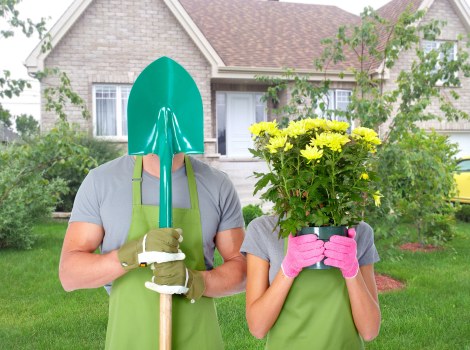
Every gardener in Raynes Park has their own unique approach, yet many draw inspiration from a shared set of techniques. Organic gardening is a cornerstone here, with emphasis placed on natural pest control, composting, and the use of non-toxic fertilizers. Gardeners follow seasonal planting calendars, ensuring that each plant gets the care it needs at the right time. For example, leafy greens and root vegetables are often planted in succession to maximize yield and minimize waste.
In addition to organic methods, many gardeners implement innovative watering techniques such as drip irrigation that minimizes water wastage. Rain barrels are common fixtures in many gardens, capturing precious rainwater for reuse during drier periods. This not only conserves water but also reduces utility bills, making it a practical solution for urban gardeners.
Furthermore, expert horticultural tips have made local gardens stand out. Gardeners often share advice on soil improvement, pest management, and plant breeding through community forums and workshops. One particularly popular practice is the use of companion planting, where different types of vegetables and herbs support each other’s growth and help repel natural pests. These tips, passed along during community meet-ups, contribute to a collective knowledge base that benefits new and veteran gardeners alike.
Nearby Areas and Vibrant Surroundings
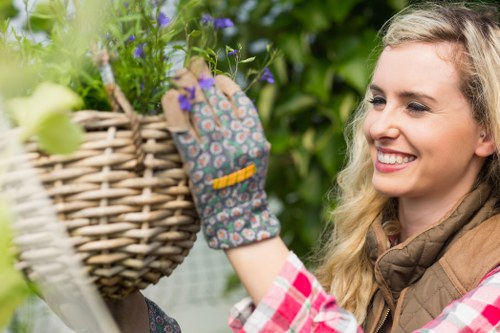
Beyond the boundaries of Raynes Park, the surrounding areas are equally amazing when it comes to gardening. These neighboring communities share similar values and traditions. Local residents often venture into nearby parks and allotments, enjoying a variety of natural scenes, each with its own distinct touches. The natural beauty of these regions is enhanced by the collaborative cultural efforts that stem from a love for gardening.
The areas adjacent to Raynes Park offer a diversity of experiences. In Wimbledon, for instance, lush green spaces and historical parks provide an oasis of calm amidst urban life. Similarly, neighborhoods like Mitcham and Sutton are known for their welcoming community gardens, where local gardeners exchange ideas and promote sustainable living. This close proximity ensures that everyone benefits from shared green practices, contributing to a stronger regional network of environmental care.
Moreover, the local government and community organizations in these neighboring areas support a range of garden-based projects. From city-sponsored green initiatives to privately-run gardening clubs, there is an abundance of opportunities for participation and learning. The synergy between these communities demonstrates a united commitment to preserving and promoting green spaces, reinforcing the idea that a lush environment is essential to quality urban living.
Local Benefits and the Broader Impact of Gardening in Raynes Park
Gardeners in Raynes Park not only focus on their own plots, but they also work on projects that create a lasting impact throughout the community. Local schools have incorporated garden-based learning into their curriculum, teaching children about plant life, composting, and the importance of nature. This early exposure to gardening nurtures a sense of responsibility and respect for the environment.
The benefits of gardening extend further than just the beautification of the area. Increased green spaces contribute to reduced stress levels, improved air quality, and a stronger sense of communal identity. The act of gardening itself is therapeutic; many find that the process of nurturing a plant mirrors the process of caring for oneself. Furthermore, organized garden days and local market events offer opportunities for residents to bond and celebrate their garden achievements.
Alongside these tangible benefits, the sense of purpose and belonging is unmistakable. Gardeners in Raynes Park form a network that values local produce, environmental sustainability, and mutual support. Regular community events such as plant swaps, guided tours, and seasonal festivals remind everyone that even small plots of land can lead to big changes in how a community functions. This shared vision has been the cornerstone of many local initiatives that aim to improve urban living through green practices.
Innovative Approaches: Workshops and Education
The drive towards realizing full garden potential in Raynes Park is supported by a strong educational framework. Local experts, enthusiastic amateurs, and seasoned professionals often come together to organize workshops and seminars. These events cover a range of topics from soil health and water management to the latest trends in eco-friendly gardening techniques.
Many of these sessions are held outdoors, making use of the natural setting to enhance the learning experience. The hands-on lessons allow participants to directly interact with plants and see real-time results from methods such as crop rotation and natural pest deterrents. Anecdotes from experienced gardeners are shared, creating an atmosphere of shared knowledge and continuous learning.
This commitment to education is also reflected in local libraries and community centers. Here, resources are made available in the form of books, videos, and even digital tools that assist in garden planning. By embracing modern communication methods, the community ensures that both young and old can access the most current gardening information. It is this blend of new knowledge and time-tested practices that fuels the continued success of garden projects in Raynes Park.
Economic and Social Contributions
Beyond the aesthetic appeal of green spaces, the economic benefits of gardening in Raynes Park are significant. Community gardens and local horticultural projects create job opportunities, support local businesses, and even boost property values. The integration of small-scale agriculture in urban zones yields fresh produce that is often sold at local markets, promoting economic growth while reducing carbon footprints.
Small businesses related to gardening, such as nurseries, tool shops, and organic food stores, have seen considerable benefits from the energy and enthusiasm of local gardeners. This symbiotic relationship creates an ecosystem where economic growth is intertwined with social well-being. It is not uncommon to see local cooperatives and gardening clubs team up to support various business ventures, creating a robust local economy.
The social impact is equally noteworthy. The act of gardening builds strong interpersonal bonds among residents. Neighbors who might have once been strangers come together at garden meets to share tips, celebrate harvests, and collaborate on projects. This friendly interaction promotes mutual respect and offers a safe, social space for the exchange of ideas. The joyful sounds of children playing, combined with the lively chatter of garden enthusiasts, truly encapsulate the spirit of Raynes Park.
Challenges and Opportunities in Urban Gardening
Although the gardening community in Raynes Park enjoys many successes, there are still challenges to overcome. One significant challenge is the lack of space. With urban development on the rise, finding places to plant new gardens or expand existing ones becomes increasingly difficult. This scarcity has encouraged many local gardeners to innovate, transforming small balconies and rooftops into charming green retreats.
Another challenge is adapting to the unpredictable weather patterns that modern climate change brings. Gardeners are learning to choose resilient plant varieties and are refining techniques such as mulching and water conservation to better cope with periods of drought or heavy rain. In facing these obstacles, the community has become even more resourceful and tightly knit.
Despite these challenges, the opportunities are vast. There has been a growing interest in urban farming, and governmental as well as non-governmental organizations are increasingly supporting community-based green projects. Grants and community initiatives have helped transform once-abandoned plots into well-manicured gardens, further reinforcing the city’s commitment to sustainability and environmental health.
Future Perspectives for Gardeners in Raynes Park
Looking ahead, the future of gardening in Raynes Park is as vibrant as its blooming spring flowers. Innovative projects and eco-friendly initiatives are in the pipeline to expand the green footprint of the area. With rising interest in renewable energy and sustainable urban development, local planners are teaming up with gardening groups to integrate more green spaces into the city's infrastructure.
Educational programs and community-driven events are expected to increase participation in local horticulture. Schools and local organizations are planning to expand garden-based learning, ensuring that the ethos of environmental stewardship is passed down to future generations. This ongoing project to merge education with gardening is a testament to the area’s commitment to continuous improvement.
Moreover, the success stories from Raynes Park have begun to inspire neighboring regions, leading to a broader dialogue on urban sustainability. Gardeners are now recognized as key players in the pursuit of a greener, healthier city. Whether through small residential projects or large public gardens, the passion for cultivating nature continues to grow stronger by the day.
Embracing Diversity: Garden Styles and Inspirations
Gardeners in Raynes Park celebrate diversity by embracing a multitude of garden styles. From modern minimalist arrangements to more traditional cottage gardens, each design reflects the personality and creativity of its caretaker. The variety not only offers aesthetic diversity but also introduces a broad spectrum of plants that cater to local wildlife and the environment.
Many local gardeners draw inspiration from international trends while maintaining a unique local twist. For instance, Zen gardens and European-style plantations have found their way into Raynes Park, offering serene spaces that encourage relaxation and mindfulness. The use of native species coupled with exotic introductions creates a patchwork of color, texture, and fragrance that appeals to many.
This diversity also extends to garden maintenance. Homegrown expertise in organic pest control, sustainable landscaping, and recycled garden projects shows that every garden is a personal statement. By hosting local competitions and exhibitions, the community encourages innovative ideas and celebrates success stories, thus empowering more residents to explore their passion for gardening.
Linking Past, Present, and Future
The gardens of Raynes Park are a living chronicle of the area’s history. They tell the stories of past struggles, triumphs, and the evolution of community life. Memorial gardens and dedicated green spaces pay tribute to individuals who dedicated their lives to nurturing urban nature. This deep connection gives contemporary gardeners a sense of responsibility to preserve these legacies.
Contemporary projects often involve restoring neglected spaces. Community-led efforts have transformed unused plots into spaces where creativity blooms—providing venues for art, music, and cultural festivals. This mix of history and modernity results in a dynamic landscape that continues to evolve, guided by a collective vision of sustainability and beauty.
As future projects unfold, there is an optimistic outlook that Raynes Park will continue to serve as a model of urban gardening. City planners, environmental activists, and local enthusiasts all agree that preserving green spaces is paramount. By combining past traditions with modern science and innovative urban design, the future looks bright for gardeners in Raynes Park and the communities around them.
Frequently Asked Questions
- What makes gardening in Raynes Park unique?
Gardeners Raynes Park have a rich tradition of blending modern sustainability with historical practices, creating green spaces that are both beautiful and environmentally friendly. - How do community gardens enhance local life?
They offer educational opportunities, improve air quality, reduce urban heat, and foster social interactions among residents. - What sustainable practices are common among local gardeners?
Many use organic fertilizers, water-saving techniques like drip irrigation, and integrate composting and rainwater harvesting in their gardens. - Which nearby areas are known for their gardening initiatives?
Communities such as Wimbledon, Mitcham, Sutton, Tooting, Norbiton, Surbiton, Earlsfield, Clapham, Kingston, New Malden, Wimbledon Park, Balham, Putney, Teddington, and Richmond are celebrated for their gardening efforts. - Are there workshops available for new gardeners?
Yes, numerous local workshops and community events are held throughout the year, providing guidance on sustainable gardening techniques and organic practices.
Gardeners in Raynes Park continue to shape their environment with care, creativity, and resilience. This strong community focus, combined with a commitment to sustainability and education, ensures that every garden is a step towards a greener, healthier future. Whether you are an experienced horticulturist or just starting out, the welcoming spirit of Raynes Park invites you to pick up a spade, plant a seed, and become part of a community that cherishes the beauty of nature.
Each garden is a story of dedication – a tale of transforming barren spaces into flourishing sanctuaries. It’s a testament to the power of collaborative effort and the deep-rooted connection humans have with nature. With each flower that blooms and every vegetable that ripens, the legacy of Raynes Park grows stronger, inspiring neighboring areas and offering hope for a sustainable urban future.
As urban pressures increase, the efforts of these gardeners stand as a beacon of resilience. They remind us that even in the heart of a busy city, there is always room for nature to thrive. Raynes Park and its surrounding communities are a vivid example of how communal effort, backed by innovative techniques and a shared passion for green living, can transform an environment. Every plant, every garden, and every collaborative project contributes to the greater goal of balancing urban development with the nurturing of nature.